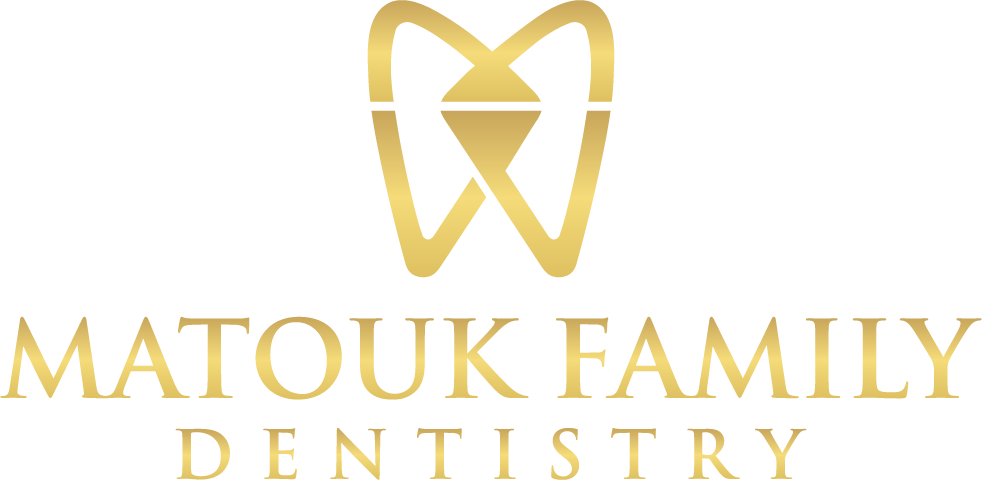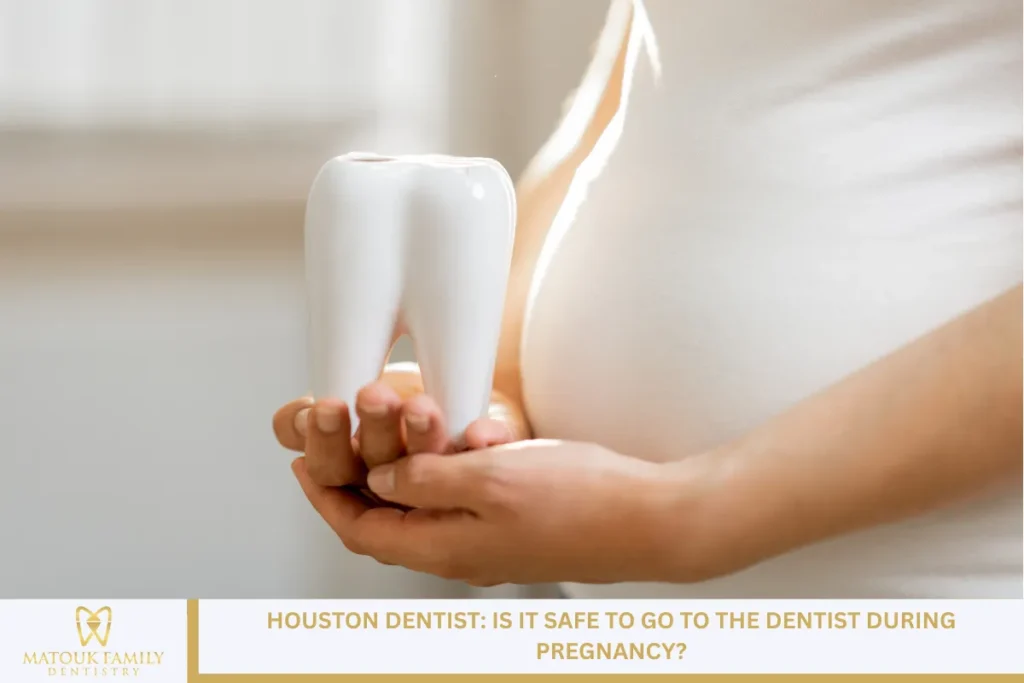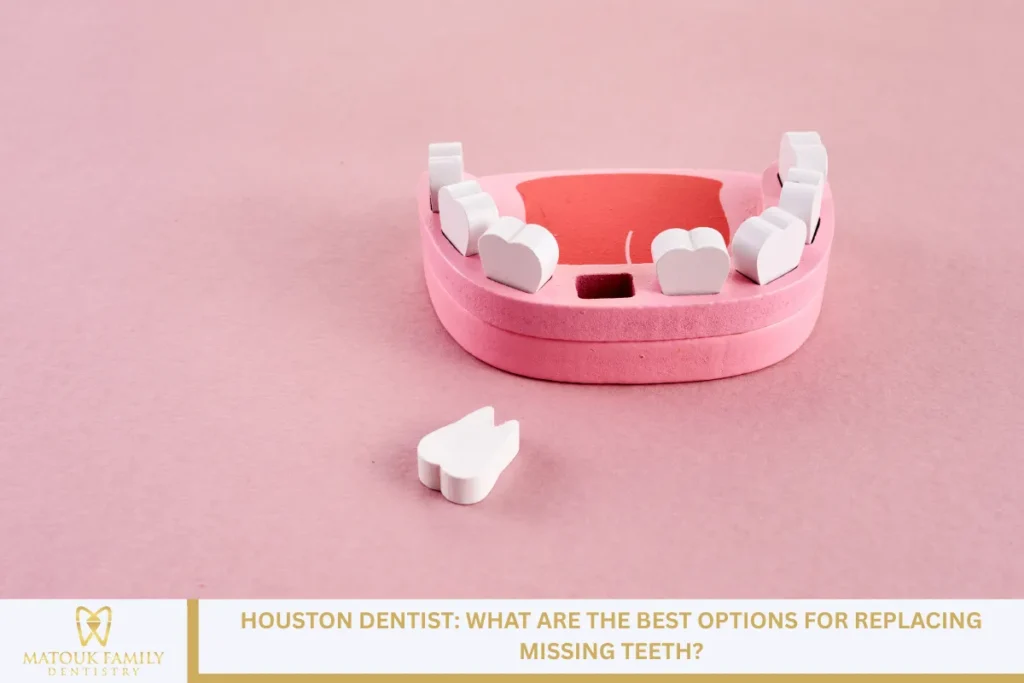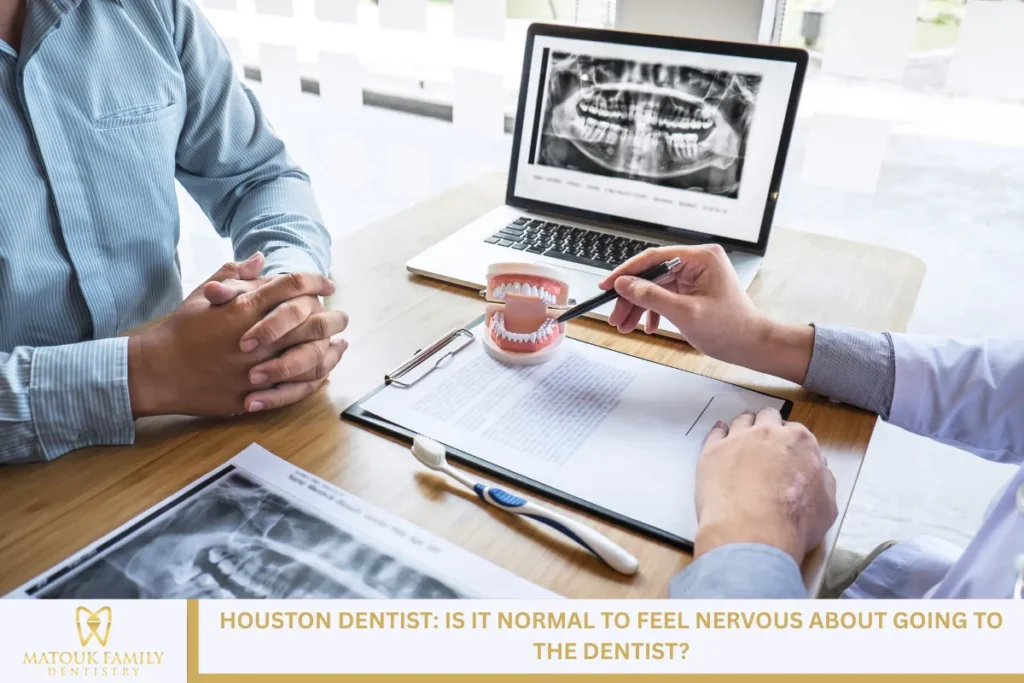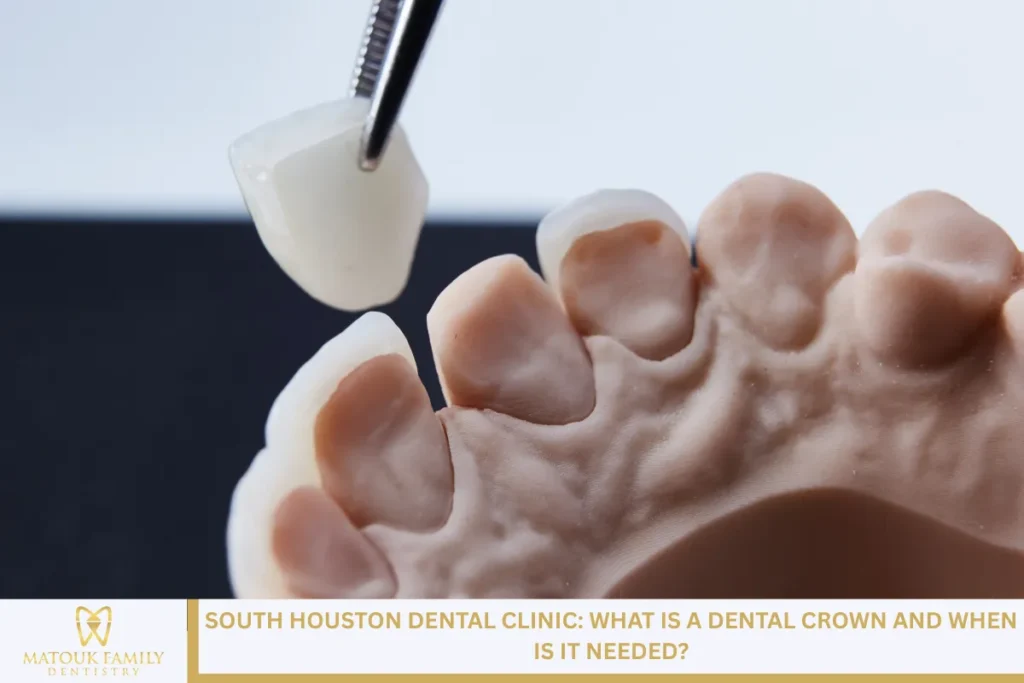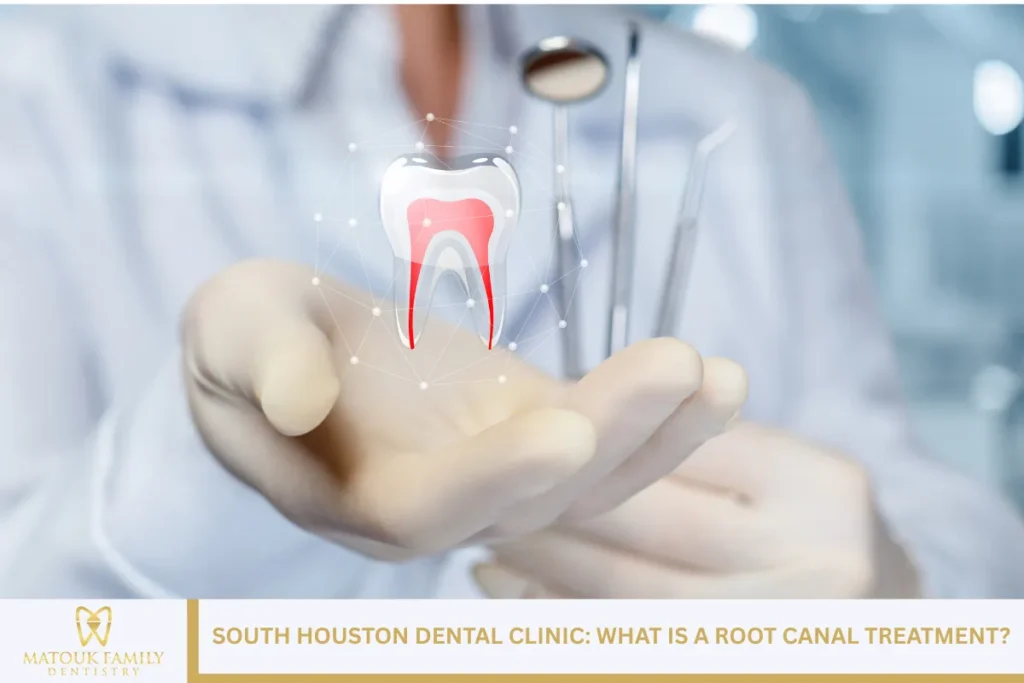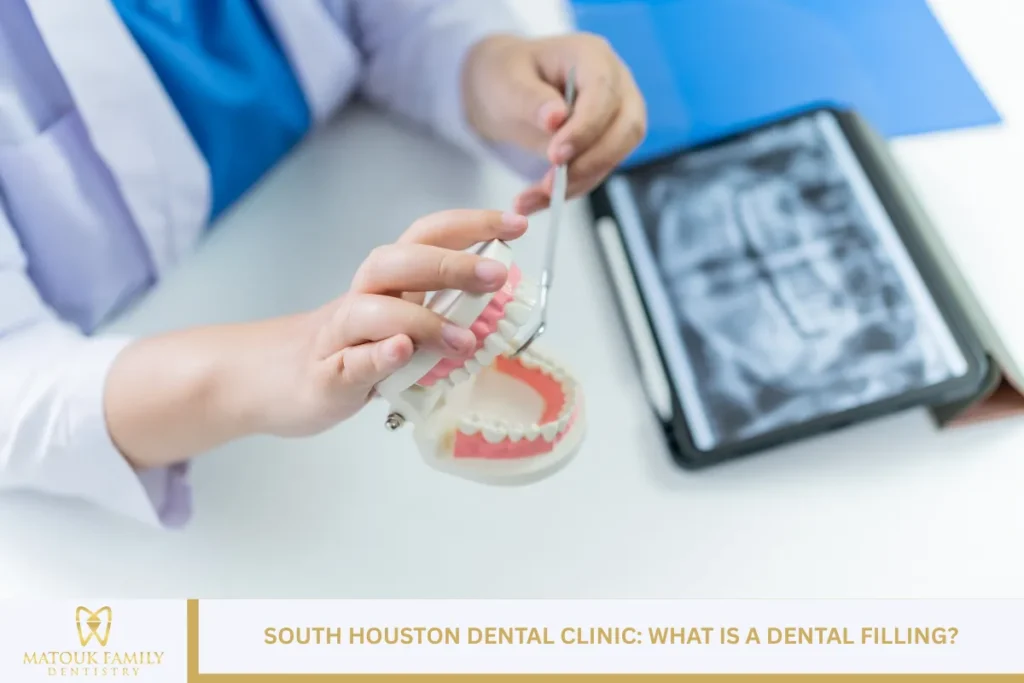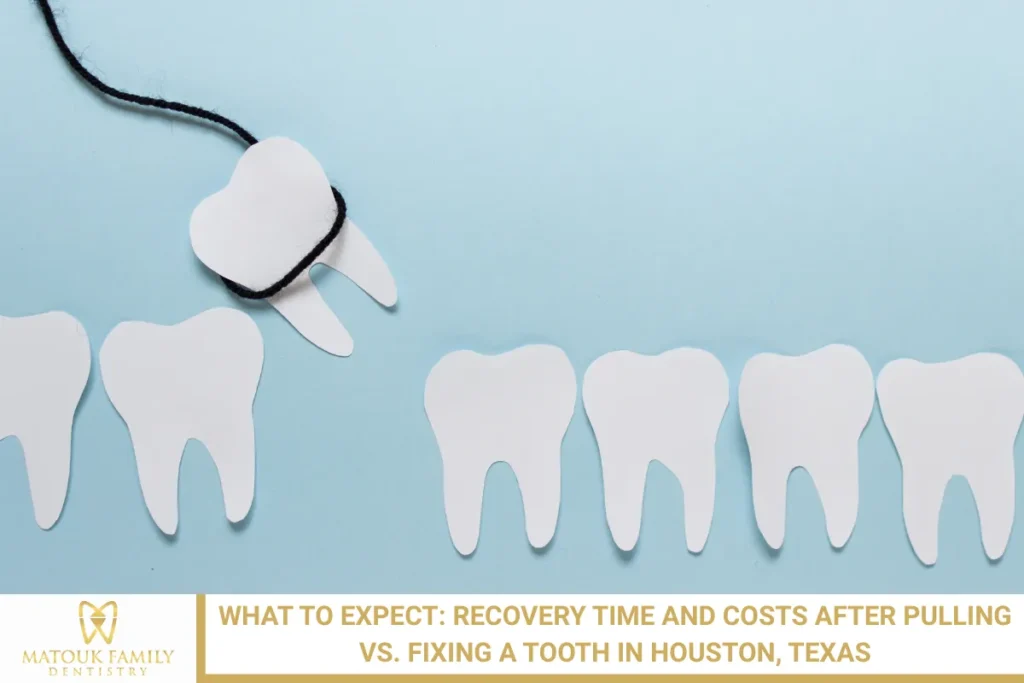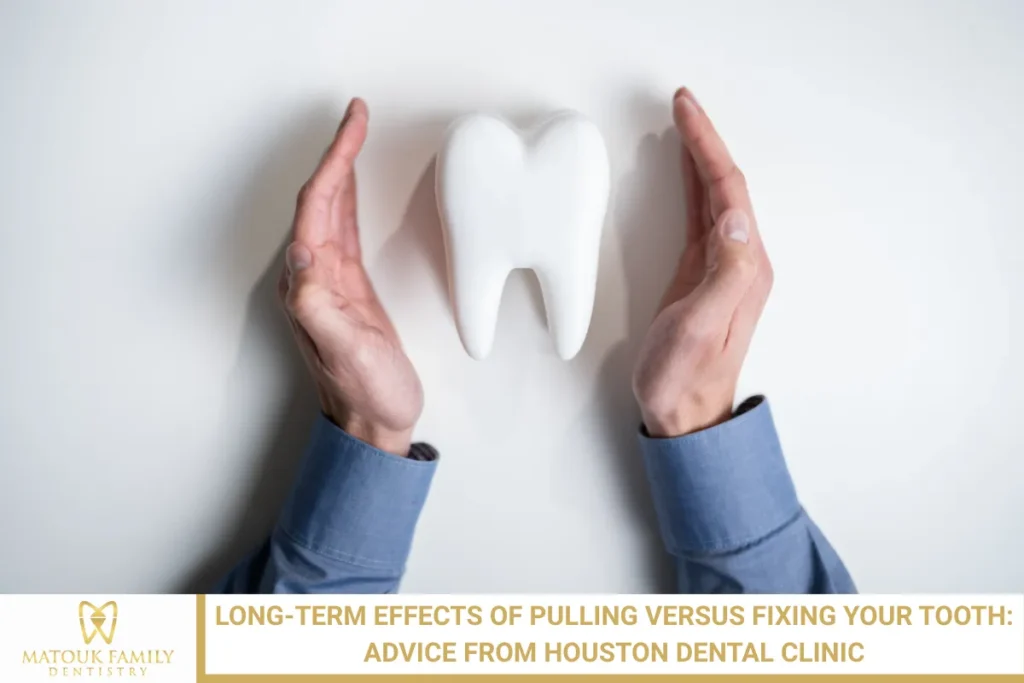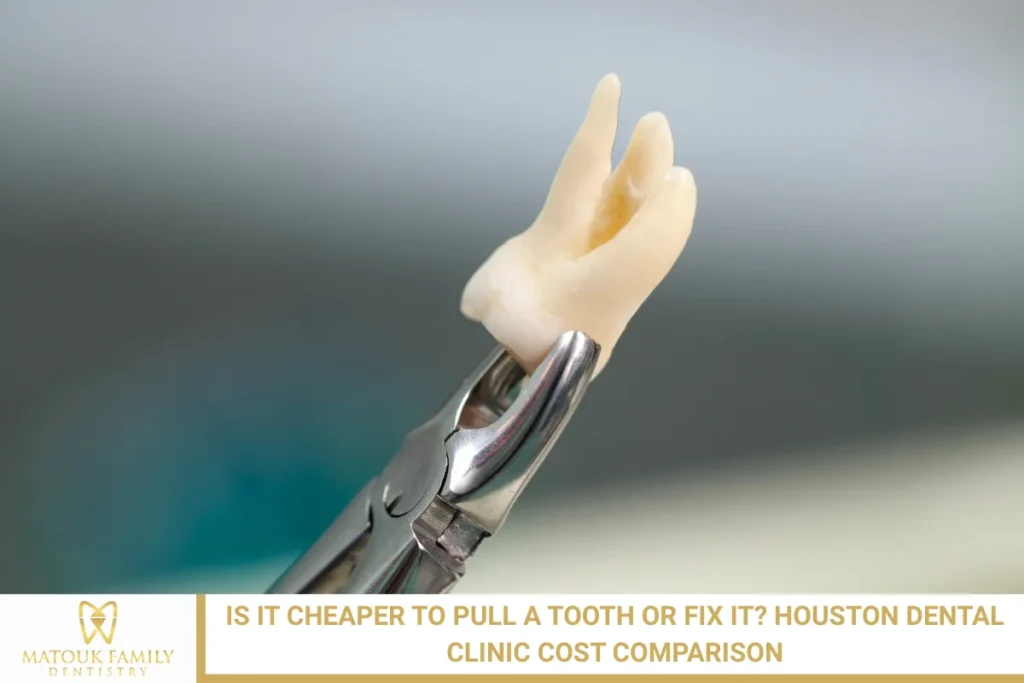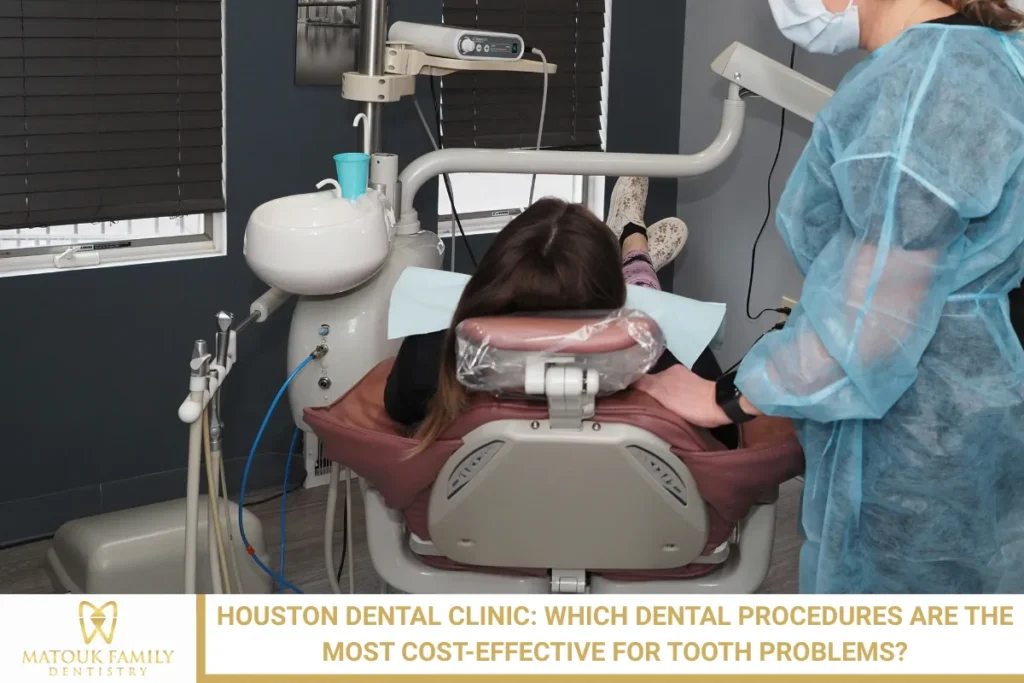Pregnancy brings a wave of physical, emotional, and hormonal changes that affect nearly every part of a woman’s body. Amidst all these changes, some expectant mothers wonder whether they should continue visiting the dentist. Visiting a Houston dentist during pregnancy is not only safe, but it’s also an essential part of prenatal care that helps protect both the mother and the developing baby.
Maintaining oral health throughout pregnancy is critical to overall well-being. As the body undergoes constant changes, including shifts in hormones and immune responses, pregnant women may be more susceptible to dental issues such as gum disease, tooth decay, and dry mouth. Neglecting dental health during this time could increase the risk of complications, so proper care and routine checkups are strongly advised.
The Relationship Between Pregnancy and Oral Health
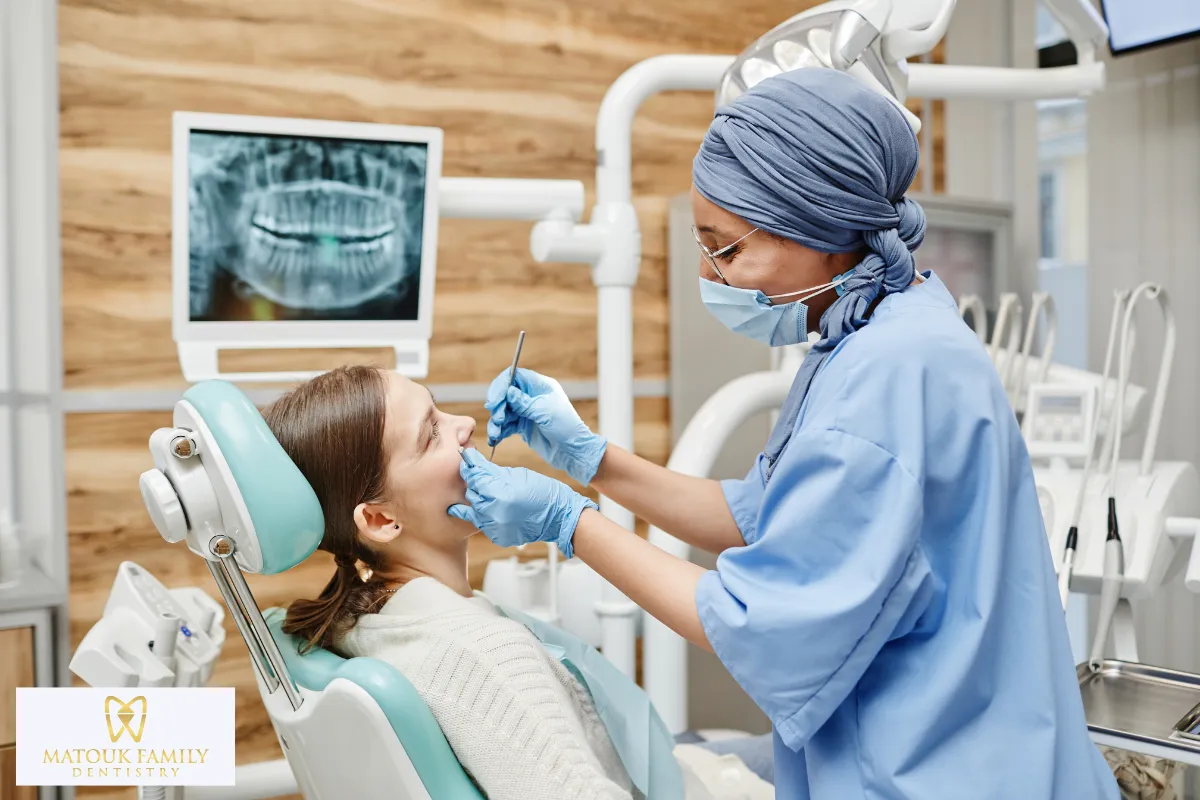
Pregnancy has a direct impact on oral health due to the rise in estrogen and progesterone. These hormonal changes can affect the way gums respond to plaque, increasing the likelihood of inflammation and bleeding.
Pregnancy and Hormonal Shifts
Estrogen and progesterone levels rise significantly during pregnancy, which can make the gums more sensitive and reactive to plaque. As a result, some women develop red, swollen gums that bleed easily during brushing or flossing. This condition is known as pregnancy gingivitis.
This early form of gum disease can develop as soon as the second month of pregnancy. Without proper care, it may progress into more serious conditions, such as periodontitis, which can affect the structures supporting the teeth and potentially lead to tooth loss.
Immune System Changes
During pregnancy, the immune system naturally adapts to support the growing fetus. These adjustments can lower the body’s resistance to infection, making it easier for bacteria to grow and cause gum disease. This is why dental hygiene becomes even more important during this time.
Importance of Visiting a Dentist During Pregnancy
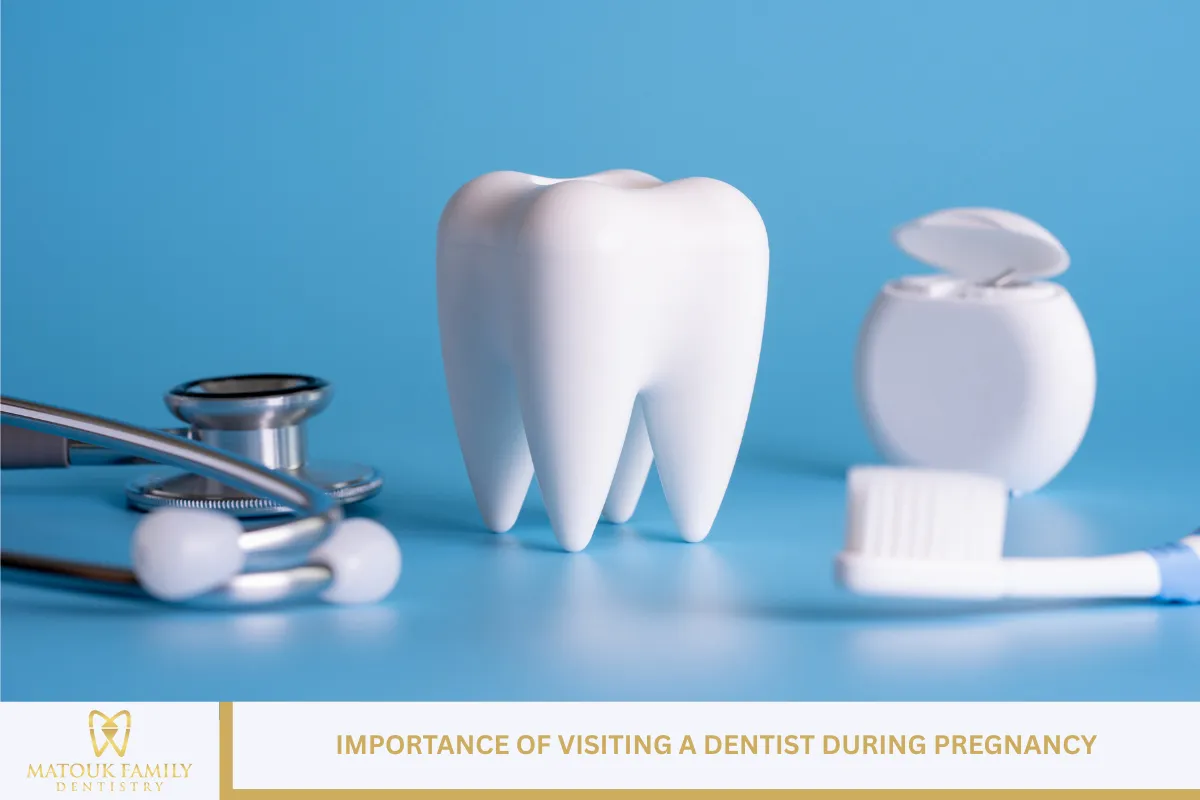
Seeing a Houston dentist while pregnant supports the health of both the mother and the unborn child. Professional dental cleanings and exams help detect issues early and prevent complications that could otherwise escalate during pregnancy.
Preventing Gum Disease and Other Infections
Regular dental visits during pregnancy help prevent and manage common oral health problems. Gingivitis, if left untreated, can lead to more serious infections that may affect pregnancy outcomes. Some studies have suggested a connection between periodontal disease and premature birth or low birth weight. While research is ongoing, most dental and medical professionals agree that a clean, infection-free mouth reduces overall health risks.
Managing Tooth Decay
Pregnant women are at a higher risk of cavities due to increased acidity in the mouth, changes in eating habits, and morning sickness. Acid from frequent vomiting and sugary cravings can erode tooth enamel, making teeth more susceptible to decay. A dentist can provide preventive treatments and early intervention to protect teeth and minimize long-term damage.
Safe Dental Treatments During Pregnancy
Dental care is not only safe during pregnancy but also recommended. Many common treatments can be performed safely with minimal risk to the mother or baby, especially when handled by a knowledgeable dentist in Houston.
Routine Cleanings and Exams
Routine dental cleanings are safe and should not be skipped during pregnancy. These cleanings remove plaque and tartar that regular brushing cannot, helping to reduce gum inflammation and prevent infections. A dentist can also identify early signs of oral issues that may need attention.
Fillings and Cavity Repairs
Dental fillings are safe to perform during pregnancy, particularly in the second trimester. If decay is present, treating it promptly helps prevent more serious problems later. Leaving cavities untreated can lead to pain, infection, or the need for more complex procedures in the future.
Dental X-Rays with Shielding
Modern dental X-rays use very low levels of radiation and are considered safe for pregnant women when necessary. Dentists take extra precautions, such as using lead aprons and thyroid collars, to protect both mother and baby. If an X-ray is needed for diagnosis or emergency treatment, it should not be avoided due to pregnancy alone.
Best Time for Dental Visits During Pregnancy
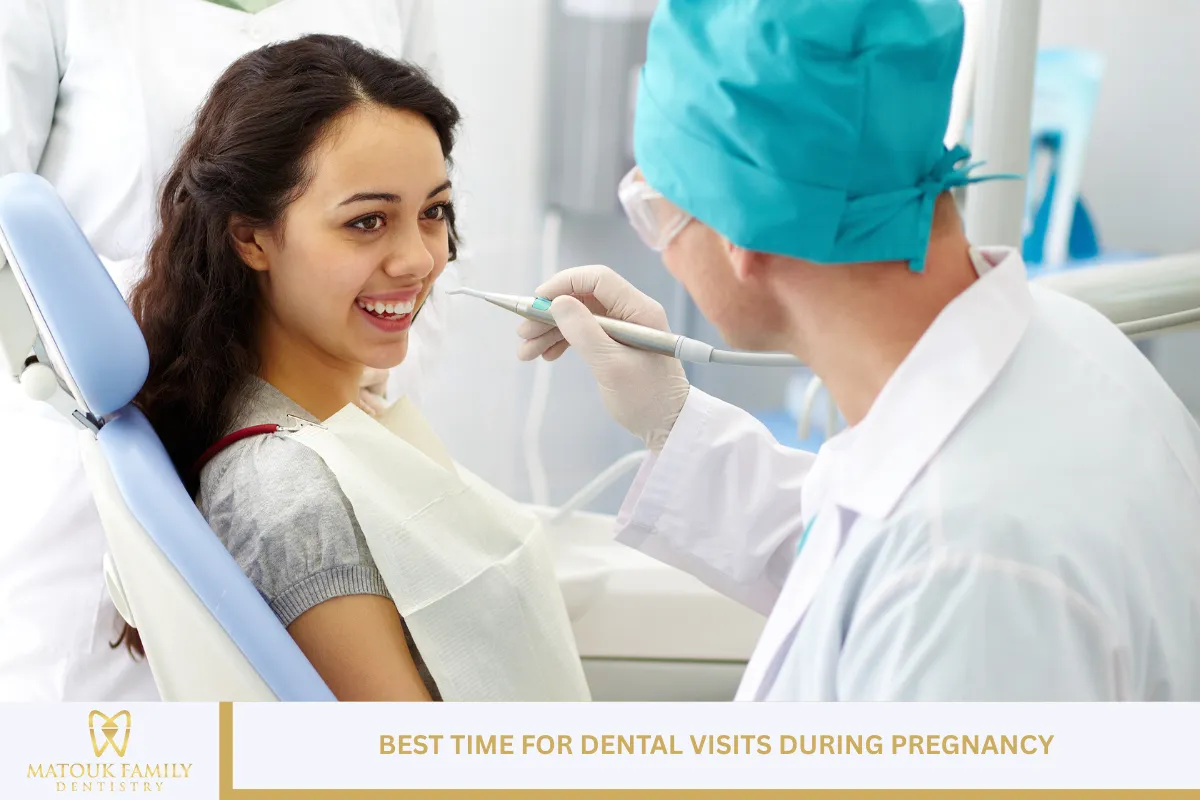
While dental care is safe throughout pregnancy, the second trimester is generally considered the most comfortable time for treatments. By this point, morning sickness often subsides, and it’s still early enough to avoid the discomfort of lying on your back for extended periods in the third trimester.
First Trimester
In the first trimester, dentists usually focus on preventive care and urgent treatments. Elective procedures are often postponed unless necessary, due to the rapid development of the fetus during this time.
Second Trimester
This is the ideal time for most dental procedures. The baby’s organ development is mostly complete, and the mother typically feels more energetic and comfortable. Routine cleanings, fillings, and exams are commonly scheduled during this phase.
Third Trimester
Dental visits are still safe during the third trimester; however, some women may find it uncomfortable to remain in the dental chair for extended periods. Dentists may take extra care to position patients safely to avoid pressure on major blood vessels and to reduce dizziness or discomfort.
Dental Procedures to Avoid During Pregnancy
Although many dental treatments are safe, some elective or non-urgent procedures are better postponed until after childbirth.
Cosmetic Dentistry
Cosmetic procedures, such as teeth whitening, bonding, or veneer applications, are not medically necessary and are typically delayed until after delivery. These treatments often involve chemicals or extended chair time, which can be avoided during pregnancy without affecting oral health.
Deep Sedation and General Anesthesia
Procedures that require heavy sedation or general anesthesia are typically avoided unless necessary. While local anesthetics are safe, stronger forms of sedation carry potential risks and should only be used in emergencies.
Common Oral Health Problems in Pregnancy
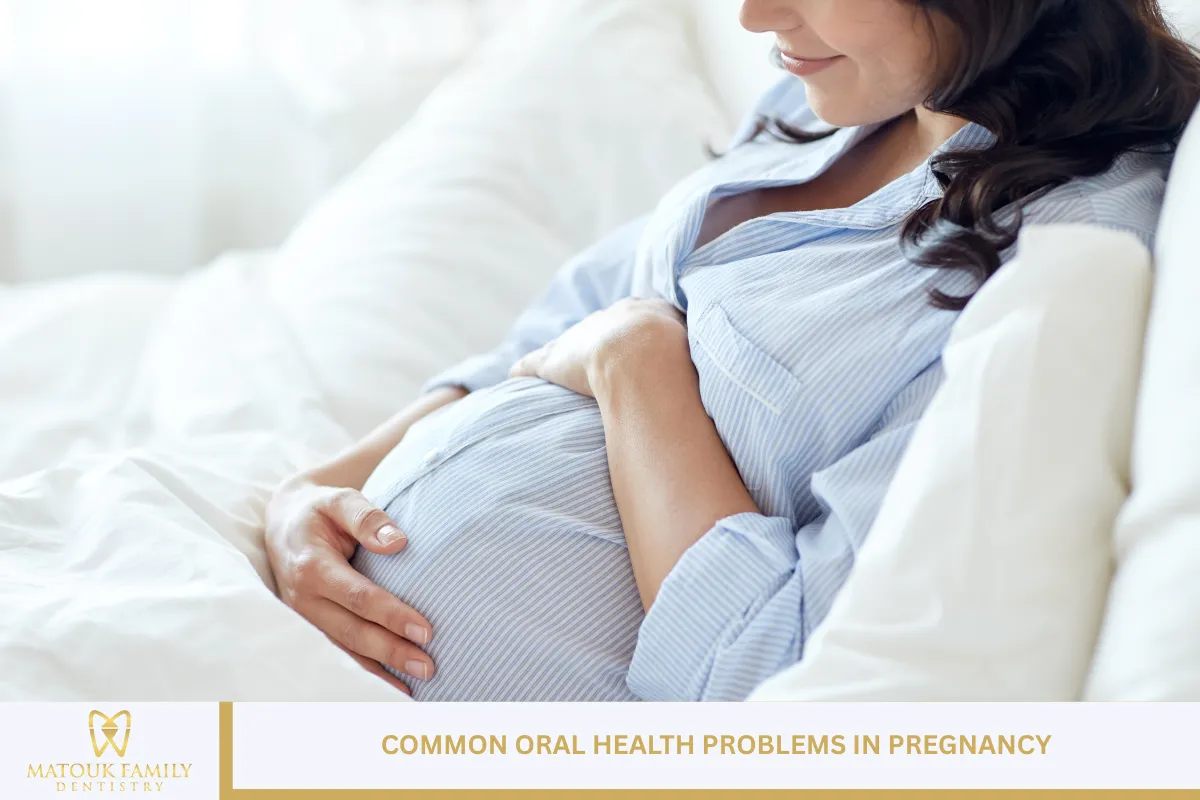
Several oral health issues may appear or worsen during pregnancy. Being aware of these conditions can help expecting mothers take early action to protect their teeth and gums.
Gum Inflammation (Pregnancy Gingivitis)
This condition is characterized by tender, red, and swollen gums that may bleed during brushing. It results from hormonal changes and the accumulation of plaque. Daily brushing, flossing, and regular cleanings help keep it under control.
Tooth Sensitivity and Enamel Wear
Morning sickness, which causes frequent vomiting, exposes teeth to stomach acid that can weaken enamel. Over time, this erosion can make teeth sensitive to hot, cold, or sweet foods. Dentists may recommend specific toothpaste or treatments to help strengthen enamel.
Dry Mouth and Excess Saliva
Some pregnant women experience dry mouth due to hormonal changes or medication, increasing the risk of decay. Others may produce excess saliva, which can also feel uncomfortable. Drinking water frequently and chewing sugar-free gum can help manage these symptoms.
Houston’s Climate and Oral Health During Pregnancy
The warm and humid climate in Houston can affect hydration levels, which in turn may influence oral health during pregnancy. Staying properly hydrated is crucial for supporting saliva production and reducing dry mouth, especially during the hot summer months.
Higher temperatures can also contribute to fatigue, leading to inconsistent brushing or flossing habits. Pregnant women need to maintain consistency with their oral hygiene routines, even during warmer seasons when energy levels may be lower.
Tips for Maintaining Oral Health During Pregnancy
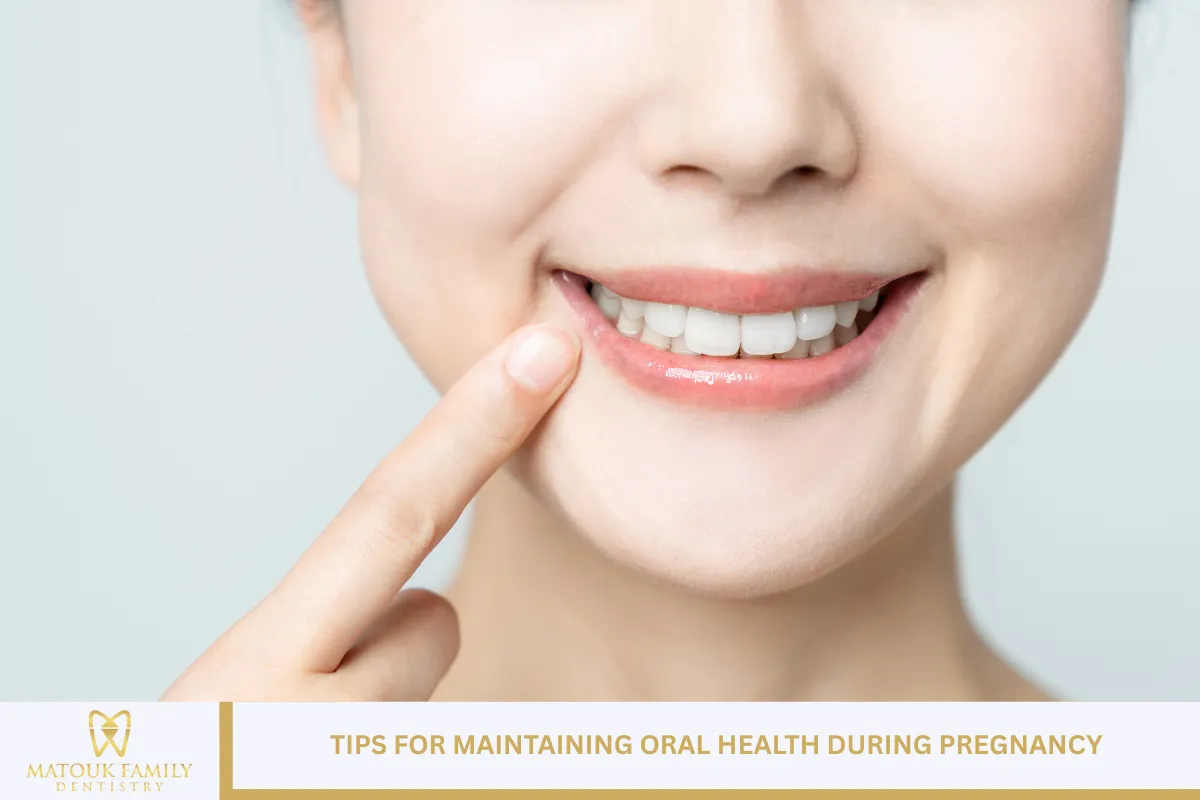
Simple steps can make a big difference in protecting your oral health during pregnancy. Here are a few key recommendations:
- Brush at least twice a day with fluoride toothpaste.
- Floss daily to remove plaque between teeth and along the gumline.
- Avoid sugary snacks and acidic drinks that increase the risk of cavities.
- Rinse your mouth with water after vomiting to reduce acid damage.
- Stay hydrated, especially during warmer weather, to support saliva production.
- Schedule dental checkups and let your dentist know you’re pregnant.
- Use a soft-bristled toothbrush to reduce gum irritation and discomfort.
Following these habits not only supports healthy teeth and gums but also promotes a healthier pregnancy overall.
Why Personalized Dental Care Matters
Every pregnancy is unique, and so is every woman’s dental health. A personalized approach ensures that treatment plans are tailored to each patient’s specific needs. A skilled Houston dentist will consider the patient’s medical history, pregnancy stage, symptoms, and comfort level before recommending any procedure or product.
Good communication between the patient, dentist, and prenatal care provider is also essential. Sharing information about health conditions, medications, or concerns enables safer, more coordinated care.
A Final Word on Dental Care During Pregnancy
Oral health is a crucial component of a healthy pregnancy. Choosing to visit a Houston dentist during this time helps reduce the risk of gum disease, cavities, and other conditions that could affect both the mother and her baby. Regular cleanings, timely treatments, and good at-home care provide a strong foundation for long-term dental health.
Neglecting dental care while pregnant may lead to complications that are avoidable with simple preventive steps. Pregnancy is a time of change, but it’s also a time to stay consistent with health routines — including oral care. Seeking professional dental support ensures that your smile stays strong and healthy before, during, and after pregnancy.
Houston Dentist – Matouk Family Dentistry
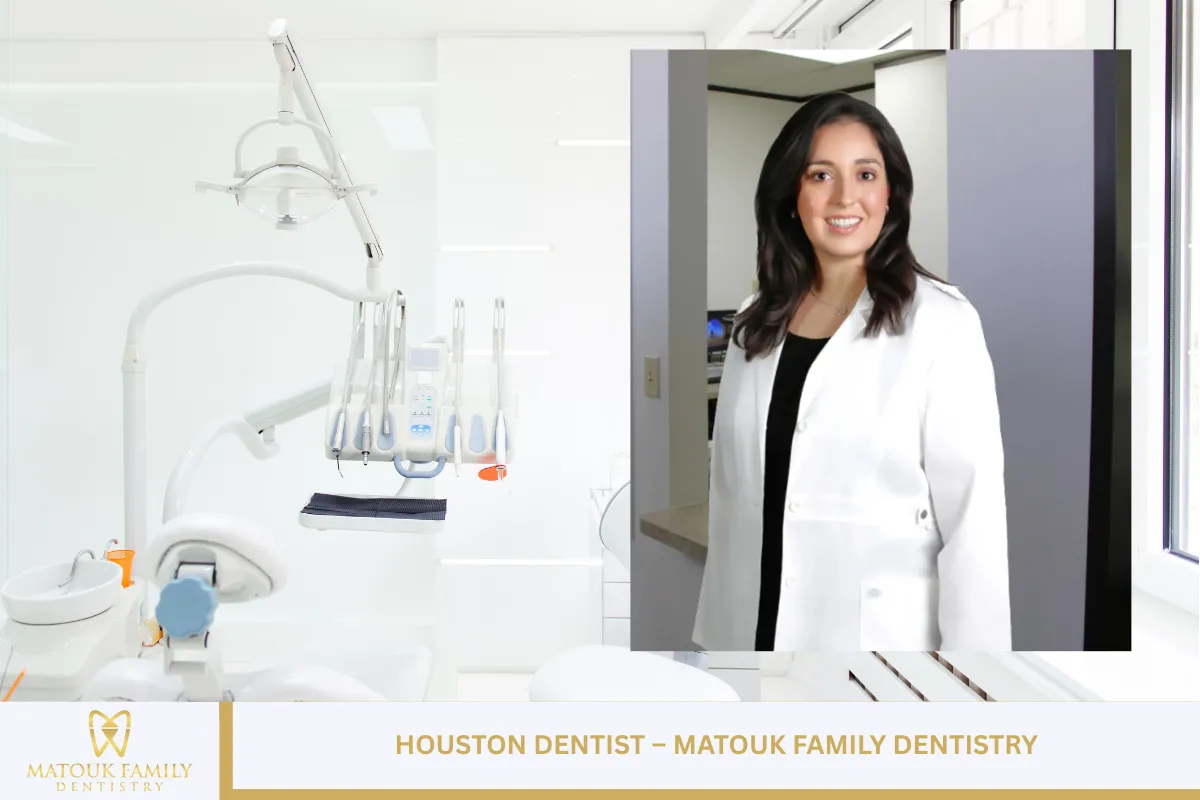
Matouk Family Dentistry offers gentle, thorough dental care for women at every stage of pregnancy. Led by Dr. Christina Matouk, our practice understands the unique needs and concerns that come with this important time in your life. We provide safe and effective treatments to maintain your smile’s health without compromising your comfort or your baby’s safety.
Our clinic, located just off the Gulf Freeway in Houston, is fully equipped to handle routine exams, cleanings, fillings, gum care, and other services tailored to expecting mothers. We approach every visit with care, respect, and personalized attention. Reach out to us today at (281) 484-3675 to schedule your appointment and let our friendly team support your dental health with compassion and expertise.
Frequently Asked Questions About Pregnancy and Dental Care
1. Why do pregnant women experience more dental problems?
Pregnant women often face increased dental issues due to hormone changes that affect blood flow, gum sensitivity, and immune response. These changes can trigger oral disease, including maternal periodontitis, which is linked to poor obstetric outcomes like preterm birth.
Here’s why problems can develop:
- Increased progesterone and estrogen promote dental plaque buildup.
- Gums may overreact, leading to pyogenic granulomas or “pregnancy tumors.”
- Morning sickness contributes to tooth erosion due to stomach acid.
- Dry mouth may lead to the growth of bacteria that cause cavities.
To prevent issues, maintain strong oral hygiene:
- Brush your teeth twice daily with toothpaste containing fluoride.
- Floss regularly.
- Use Xylitol gum to stimulate saliva and reduce your risk of decay.
Schedule regular dental checkups with your health care provider and dentist to ensure early detection and prevention. Consistent care is key to protecting both maternal health and the baby’s development during pregnancy.
2. Can pregnant women get a root canal if needed?
Yes, Root Canal treatment is considered one of the many pregnancy-safe procedures when properly managed. Suppose a tooth becomes infected or severely decayed. In that case, delaying treatment can lead to a dental abscess, bone loss, or even a systemic infection — all of which can negatively impact the obstetric outcome.
Important facts:
- A health care provider and dentist should coordinate care.
- Local anesthesia is considered safe during pregnancy and can help manage pain effectively.
- Digital radiography or dental radiographic examinations can be used to diagnose issues with minimal radiation exposure.
Root canals may be necessary if:
- You have deep dental caries.
- You’re in pain or have visible swelling.
- There is an infection threatening the tooth structure or surrounding bone.
Delaying necessary care can pose far more risk than the procedure itself. Most Houston dentists follow safety protocols such as shielding and low-dose imaging to ensure the treatment is safe for both the pregnant woman and her baby.
3. Are fluoride varnish treatments safe for pregnant women?
Fluoride varnish is safe and beneficial for pregnant women. It helps protect tooth enamel from erosion, especially in cases where morning sickness increases mouth acidity. Applying fluoride professionally strengthens enamel, prevents dental caries, and lowers the risk of cavity-causing bacteria buildup.
Here’s what you should know:
- It’s a topical treatment, meaning it’s applied to the teeth — not ingested.
- It provides long-lasting protection by releasing fluoride over time.
- The American Dental Association supports it as part of preventive care during pregnancy.
Combined with good oral hygiene habits, fluoride varnish can:
- Re-mineralize weakened enamel
- Reduce decay in high-risk areas
- Protect against acids from vomiting or dietary changes
Your Houston dentist may recommend fluoride varnish as part of a routine dental checkup, especially if you show signs of enamel wear or are at higher risk of decay due to pregnancy-related factors.
4. What is prenatal periodontal therapy, and why is it important?
Prenatal periodontal therapy is essential for preventing and managing gum infections in pregnant women. It typically includes scaling and root planing, which are deep cleaning procedures designed to remove plaque and tartar below the gumline. This therapy helps manage maternal periodontitis, a severe form of gum disease that can affect both oral and overall health.
Here’s why it matters:
- Untreated periodontal disease can lead to bone loss and tooth mobility.
- Research suggests a connection between maternal periodontitis and poor obstetric outcomes, including premature birth and low birth weight.
- Hormonal shifts increase gum sensitivity and inflammation, making pregnant women more vulnerable.
What’s involved in treatment:
- Assessment of gum pockets and dental plaque buildup.
- Removal of hardened tartar through scaling and root planing.
- Follow-up visits to monitor healing and inflammation.
Combining periodontal therapy with strong daily dental habits helps ensure a healthier pregnancy. It reduces the risks associated with oral disease.
5. Are X-rays during pregnancy safe, and what precautions should be taken?
X-rays during Pregnancy, also known as dental radiographs, are considered safe when necessary and taken with appropriate precautions. Digital radiography significantly reduces radiation exposure, enabling dentists to diagnose dental issues, such as dental caries, infections, or the need for tooth extractions, with minimal risk to patients.
Precautions taken during pregnancy:
- Lead aprons are used to shield the abdomen.
- Thyroid collars provide additional protection.
- Only urgent or essential X-rays are taken — elective ones may be delayed.
According to the American College of Radiology and ACOG, the level of radiation from a dental X-ray is extremely low and unlikely to harm a developing fetus. In fact, avoiding necessary imaging could lead to untreated infections or complications that are more dangerous than the exposure itself.
For pregnant women, routine checkups involving dental radiographic examinations are generally safe when medically indicated. Always inform your health care provider and dentist to coordinate the best care plan.
Read more: What to Expect: Recovery Time and Costs After Pulling vs. Fixing a Tooth in Houston, Texas
